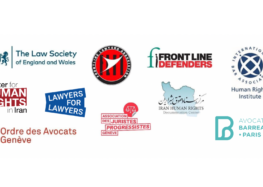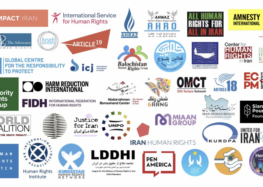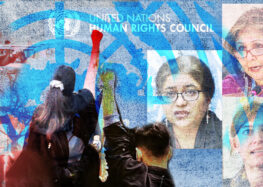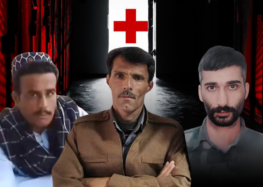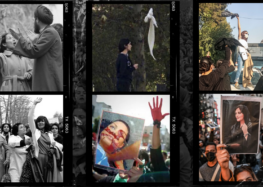Free Them Now: End Arbitrary House Arrests of Green Movement Leaders
Campaign Launches New Initiative to Free Political Prisoners in Iran
(February 17, 2015) – The Iranian Judiciary and Iran’s National Security Council should put an immediate end to four years of extrajudicial house arrest of Green Movement leaders Mir Hossein Mousavi, Mehdi Karroubi and Zahra Rahnavard, the International Campaign for Human Rights in Iran said today.
The Campaign also seeks to call attention to the plight of hundreds of prisoners of conscience who remain in Iranian prisons, many of them since the crackdown on the peaceful protests that followed the disputed 2009 presidential election in Iran, with the “Free Them Now” initiative launched today.
“The effective imprisonment of opposition political candidates for over four years without charge is an obscene miscarriage of justice and a violation of Iranian and international law,” said Hadi Ghaemi, the executive director of the Campaign.
Iranian authorities initially ordered the house arrest of former presidential candidates Mir Hossein Mousavi and Mehdi Karroubi, and their wives Zahra Rahnavard and Fatemeh Karroubi, in the week of February 14-21, 2011, after the Green Movement leaders publicly called for demonstrations in support of the popular uprisings at that time known as the “Arab Spring.” While Fatemeh Karroubi was eventually released, the other three have remained under house arrest without charges or prosecution since that time. Karroubi and Mousavi have also been denied critically needed medical treatment during this period of effective incarceration.
In recent months, Mehdi Karroubi has called on Iranian parliamentarian Ali Motahari to seek justice for the opposition leaders. Motahari, who is the highest ranking person in government to decry the detention of these three leaders, sent an open letter to the Head of the Iranian Judiciary, Sadegh Larijani, on January 4, 2015, that called the continuation of the house arrests illegal and demanded a fair and public trial for Karroubi and Mousavi.
In the letter Motahari wrote, “You can hold a fair public trial without fear of an imaginary sedition.” Iranian officials have consistently referred to the peaceful protests that followed the disputed 2009 presidential election in Iran as “sedition.” Motahari’s personal website was reportedly blocked a day after it published his letter.
Iranian officials claim that the decision to put these three leaders under house arrest was made by the previous administration’s National Security Council, a political body that lies outside the Judiciary. President Rouhani now serves as the head of the National Security Council, and yet, despite prior pledges concerning “the necessity of ending the house arrest” of these three leaders, he has yet to take any tangible public action towards this end, well into the second year of his term. On February 6, 2015, Iran’s Minister of Justice Mostafa Pourmohammadi stated that the issue of the house arrests is not on the “agenda” of the government, President Rouhani’s cabinet, or the National Security Council.
“Rouhani campaigned on a platform of championing citizens’ rights; there are few greater rights than protection against imprisonment without charge, access to counsel, or any other semblance of due process,” said Ghaemi. “As head of the National Security Council, President Rouhani has the power to release these three leaders and likely wields even more power than the Judiciary on this matter. His lack of attention to these cases calls into question his commitment to this issue.”
The Campaign’s call for the release of the three Green Movement leaders, as well as for the release of the hundreds of political prisoners who remain in Iranian jails, adds to the repeated entreaties of the UN Secretary General and other UN human rights bodies, leading human rights organizations worldwide, prominent Iranian activists, and governments around the globe who have called for the immediate release of these three leaders and all prisoners of conscience in Iran.
“The international community should make it clear to the authorities in Tehran that Iran’s international rehabilitation and reintegration is contingent upon the release of these three leaders and the hundreds of political prisoners languishing in Iranian prisons,” said Gissou Nia, the Campaign’s deputy director.
The Campaign will be highlighting the cases of individual prisoners of conscience, as part of its “Free Them Now” initiative. Show your support by visiting “Free Them Now” and tweeting under the hashtag #FreeThemNow.

